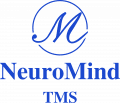How can a depression therapist cure you?
All of you might know that depression is a very much
commonly seen mental disorder among many persons. Here the main reasons for
this disorder is failure in personal life, social life, career and
relationships. So in this condition a therapist
for depression in Delhi can be a savior to help and can cure you from this
kind of problem.
He is a professional who gives treatment for mental
disorders along with a valid service license. In most cases he cures his
patients with the help of psychotherapy that is also called as talk therapy. Here
a depression therapist can also give you the best counselling to cure
depression problems with improving your life style.
What things are included in
depression therapy?
When you contact and meet a depression therapist in Delhi then he will set a series of
activities with which you can get a healthy life.
·
Here
these activities include setting and achieving goals, having adjustment with
mental stress and finding solutions to solve problems in your daily life.
·
If you
are finding effective ways to cure your depression problems then cognitive
behavioral therapy and interpersonal therapy will prove to be very much
effective for you.
·
Even
if you adopt psychotherapy then you can get cured of mental depression with 10
to 15 sessions.
·
All
this will be given to you when a good doctor is handling your case.
What can a depression therapist
give you?
Again when you choose any depression therapist in Delhi then you have to make some
preliminary steps in this concern. Just check the license, work experience and
feedback of his previous patients before you take his treatment. Here this kind
of doctor will give you many kinds of solutions to cure depression.
He might prescribe you doses of antidepressants,
ketamine injections and domestic therapy. As far as domestic therapy is
concerned here you might be told to do mediation, yoga and acupuncture. Here
you have to live a healthy lifestyle then only you can get benefits from
depression therapy.
What can best depression treatment
hospitals do for you?
Here in this concern the best hospital for depression in India can give you the high quality
treatment and rehabilitation facilities. You can get the best hospitals in
cities like Delhi, Bangalore and Hyderabad where doctors have got medical
training from abroad health care institutes.
These doctors use some good and friendly terms to
address their patients like we are here
for you, you are not alone, never feel alone as we are with you and ask us anything that you need. After you get cured from depression,
your doctor will make you to start a new life so that you can discover your
inner self.
How to reach leading psychiatrists
easily?
It has been seen and found that if you go to a leading psychiatrist in Delhi then he
will give you the best tips to get cured of depression. Here these doctors have
many things that they can give you to have relief from mental disorders like
depression. You can see the medical profile of all these professionals on the
web now where they are running their websites.






.jpg)

